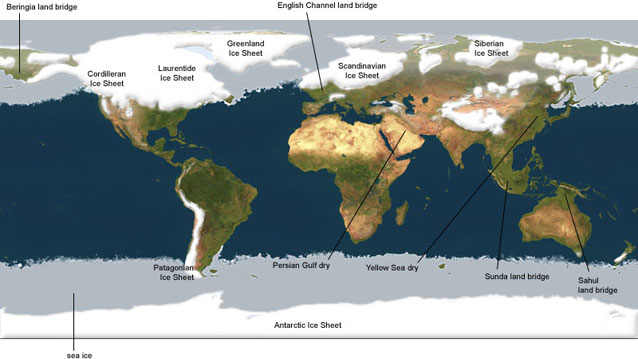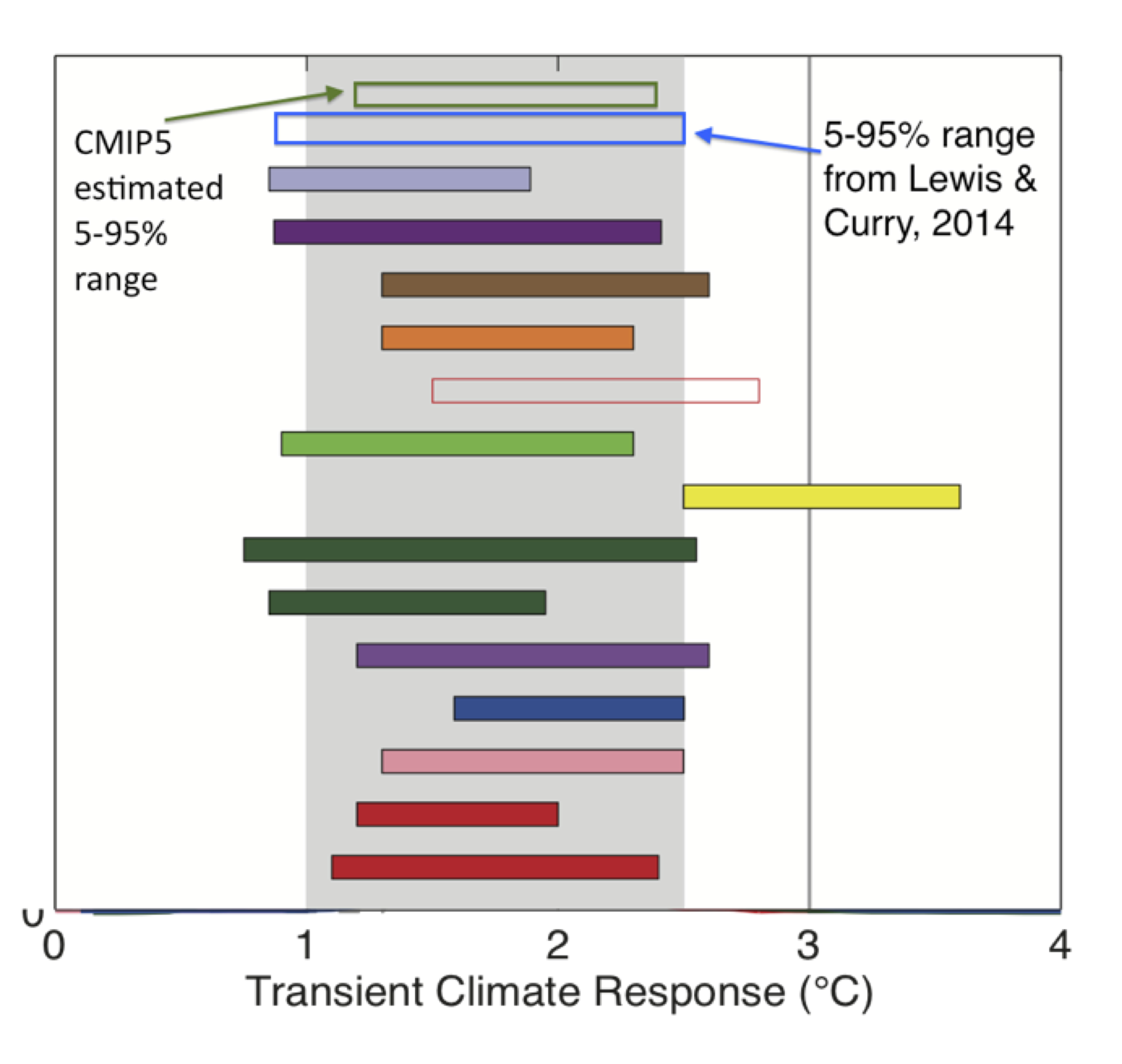As far as proxy reconstructions of the past thousand years show, there may have been plenty of
thirty or forty year periods with up to half a degree of warming before, but they're always followed by cooling of equal or similar magnitude. Usually slightly more cooling, during the long decline from the MWP to the LIA. But ~0.9 degrees of global temperature change
in a hundred years is unprecedented during that period as far as we can tell from high resolution proxy stacks. (The graphics in most papers I've seen seem to have multi-decadal smoothing, but the supplemental information for
Mann et al 2008 has some higher resolution graphs and is also one of the few which attempt a global reconstruction; Figure S5, page 17 of the PDF.)
It's also a lot faster than the much longer-term (though geologically very rapid) deglaciation warming of ~3.5K over six or seven thousand years (0.5K/century). With the limitations of proxy records we might not be able to say that the warming of the past century (a time-frame equivalent to a mere 3-4 PDO/AMO cycles) is unprecedented with very high confidence, but most likely given a few more decades with the trend we're on it
will be unprecedented during the Holocene, even if we acted now to slow the trend.
Overlaying the ~100Ka glacial/interglacial periods associated with Milankovitch cycles, there seems to have been a long-term cooling trend over the past 10 million plus years. Such a long-term, gradual trend I would guess is most likely due to continental drift (eg. variations in ocean circulation, Antarctica accumulating more sea ice and hence higher albedo as its mass increasingly centered on the South Pole etc.). It doesn't really suggest that the current warming is precedented, natural or benign.
No argument here: Even if the whole species had followed the "don't give a damn" scenario all along, global warming probably wouldn't halt or even dramatically slow human progress, unless by some remote chance the far extremes of warming came to pass - 5 degrees or more. Though it's worth noting that even there we're not talking about impossibilities; the
Nature Geoscience correspondence you've been citing recently suggests that as high as ~4.3 degrees is within the 5-95% confidence interval based on 1970-2009 observations, so warming greater than 5 degrees might be closer to a 1% chance than zero!
https://www.ethz.ch/content/dam/eth...documents/group/climphys/knutti/otto13nat.pdf
But even within the more plausible 20% (3 degrees) or 50% (2 degrees) range of probabilities, all the eviodence suggests that the consequences will be mixed, but on balance negative for humanity and even moreso for other, less adaptable species. The various sources I've looked into (mostly from the early-mid 2000s, so presumably based on the ~3 degree best estimate) suggest somewhere in the order of hundreds of millions to a few billion significantly adversely affected human lives. One doesn't need to deny or demonize all the good which fossil fuels have so far done our species in order to acknowledge that concern over their long-term climate impacts is appropriate!
Nor should we gloss over the fact that some of the cheap convenience they've offered us has led to what otherwise would be universally reviled as unconscionable waste; raw and finished products being shipped halfway around the world and back again for the cheapest labour, environmental, taxation and market conditions available, for example. In the twenty years since the Kyoto Protocol annual global emissions have continued to grow, so it's hard to say that anything has been done on that side of things: But at least there has been some modest public investment in and private preference for renewables, so if and when the political will to actually curtail greenhouse emissions arises, the alternatives are waiting.




